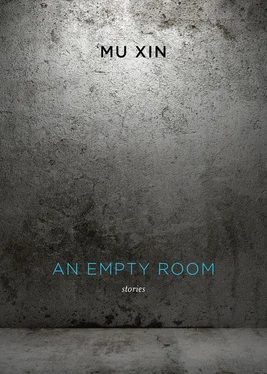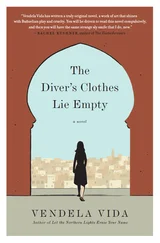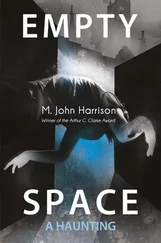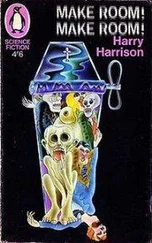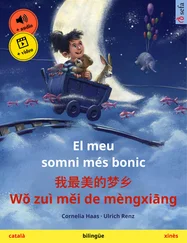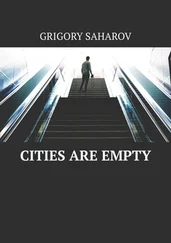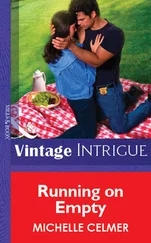Mu Xin - An Empty Room
Здесь есть возможность читать онлайн «Mu Xin - An Empty Room» весь текст электронной книги совершенно бесплатно (целиком полную версию без сокращений). В некоторых случаях можно слушать аудио, скачать через торрент в формате fb2 и присутствует краткое содержание. Год выпуска: 2011, Издательство: New Directions, Жанр: Современная проза, на английском языке. Описание произведения, (предисловие) а так же отзывы посетителей доступны на портале библиотеки ЛибКат.
- Название:An Empty Room
- Автор:
- Издательство:New Directions
- Жанр:
- Год:2011
- ISBN:нет данных
- Рейтинг книги:3 / 5. Голосов: 1
-
Избранное:Добавить в избранное
- Отзывы:
-
Ваша оценка:
- 60
- 1
- 2
- 3
- 4
- 5
An Empty Room: краткое содержание, описание и аннотация
Предлагаем к чтению аннотацию, описание, краткое содержание или предисловие (зависит от того, что написал сам автор книги «An Empty Room»). Если вы не нашли необходимую информацию о книге — напишите в комментариях, мы постараемся отыскать её.
In Our Time
An Empty Room
An Empty Room — читать онлайн бесплатно полную книгу (весь текст) целиком
Ниже представлен текст книги, разбитый по страницам. Система сохранения места последней прочитанной страницы, позволяет с удобством читать онлайн бесплатно книгу «An Empty Room», без необходимости каждый раз заново искать на чём Вы остановились. Поставьте закладку, и сможете в любой момент перейти на страницу, на которой закончили чтение.
Интервал:
Закладка:
IV. Who Is Truly Fearless?
“I have not yet loved you in the way it’s expressed in music” — suddenly I remember these words. Now that I’m in prison, I cannot possibly find Wagner’s original text, although I believe this is more or less what he said. Music is a form of art constituted by its own vanishings. In its essence and depth music is thus closest to “death.” Before I turn forty I have no plan to write my memoirs, but I’m quite impressed with Rousseau’s late work Reveries of the Solitary Walker . Turgenev’s Literary Memoir is so slim a book that I once thought it couldn’t be a must-read. But it turned out to be utterly engaging. As for myself, I still follow Flaubert’s advice: “Reveal art; conceal the artist.” When catastrophe sweeps through your political life, economic condition, love life, or your pursuit of art, you are reduced to a miserable and ridiculous state of existence. Your patience and endurance are not enough for you to overcome the adversity. Consequently, you are forced into the underground, that is you have to fight even if you don’t want to (as you must live to avoid death). Mayakovsky was forced into such a desperate situation that he had no other option but suicide. Before he took his own life, he had to fake the failure of love as his reason, saying that “a small boat of love runs up on the rock of life.” He was neither a collectivist nor an individualist. A thorough individualist fears nothing. As far as my feelings about the world are concerned, I will say, in Wagner’s words: “I have not yet loved you in the way it’s expressed in music.”
V. Happiness
“Why is it that some humans are Persians?” It was Montesquieu who asked this most interesting question. Mérimée then asked: “Why is it that some humans are Spanish?” So he went to Spain and wrote his letters and travelogues that described bullfighting, robbery, and the death penalty. His doubts vanished. But what question am I left with? I venture the view that “happiness” is so esoteric a body of knowledge that it virtually cannot be articulated. It is a trick that you can perfect only through trials and tribulations. From such examples as the facial make-up techniques of the ancient Egyptians, the schools for training prostitutes in ancient Greece, the design and display of bedrooms in ancient Arabia, and the all too exquisite body language of ancient India, it seems that humanity has tried to create “happiness” and manipulate it. Historians have construed such stories as “golden ages” or “prosperous periods,” but they have compiled no record of any specific “happy individuals.” An individual who knows what happiness is and is good at it is a genius. The genius of happiness is not an innate genius but a product of deliberate cultivation. I may not be presenting my thoughts in the most lucid manner here, but clearly see that such cultivated geniuses once existed in the world but never wrote anything like a methodology on happiness. They did leave behind, though, some mind-boggling cooking recipes, some bizarre stories of spirits and angels, and a few compassionate yet paradoxical axioms. The legacy of Epicurus seems quite humble, for he proposed “friendship, discourse and gourmet foods” as the three ingredients of happiness. But this still doesn’t get to the semantic core of happiness. Can we find a specific instance that embodies “happiness” so that we can see it with our own eyes? Yes, we can. We might ask: What does “happiness” look like? Answer: It looks like a painting by Cézanne. Happiness is painted one brushstroke at a time. Cézanne himself, his wife, they were not happy. .
The Boy Next Door
as for childhood photos, well, such photos will always become more precious as time passes. When you see someone’s childhood photos next to those of his adulthood, you gradually discover that this child is indeed this youth, and indeed this middle-aged man and this elderly man. This process of intuitive identification is nothing short of magic, despite the rare exceptions when the person trying to process the identification is either inept or his own failing eyesight prevents him from doing so.
It is equally fascinating to look at the childhood photographs of your dearest love. You think to yourself: That was a different time, we were both children then, we didn’t know each other, and how could I possibly know that I would later meet you, this exquisite you? Or perhaps the two of you became friends as children. Photos of both of you together then would be extraordinary. You’d say: Ah, yes, that was how things were, don’t you remember? But I do.
A young man doesn’t really know the value of his own images as a child. It wasn’t until I was in my forties that I retrieved my childhood photos and put them in a black, flat box together with the photos of my deceased parents. Sometimes I would open the box to pay respect to my parents, but I wouldn’t linger over the image of my child-self for fear that memories of those gloomy days of bewilderment and painful loneliness would somehow resurface.
My sister was ten years older than me, and my jiefu , my sister’s husband, was four years older than her. Eventually, as our other family members either died or disappeared, only my sister and Jiefu were around to mention how smart and vivacious I had been as a child, which to me sounded as if they were implying that I was now obtuse and indifferent. These retroactive applications of praise in no way tempered the bad memories of my childhood.
Who could have imagined that my photos would burn to ash in a catastrophic fire that would last more than ten years.
When the fire finally subsided, a friend of threw me a party in celebration of my survival. The party was held in her home as I didn’t have a home anymore and she had built a new home to replace her old one that, like mine, had been destroyed. On her living room wall hung an enormous photograph of a child.
“Is that you?” I asked.
“Yes, when I was six.”
“Very cute, looks exactly like you.”
As soon as I said that a flood of unfortunate memories rushed over me. Trying to explain why I didn’t possess a single childhood photo of myself was like an abandoned orphan trying to find an excuse for his parents.
After my sister died, the only living kin of my generation was my jiefu . He lived in a small town outside the city, and to visit him I had to take a ferry across the river and ride a bus another ten miles. His neighbor had a son named Weiliang. I would always stare in his direction with a vague, unexplainable feeling.
“Do you think Weiliang resembles anyone?” I finally asked Jiefu.
“Does he resemble anyone? Why, he looks just like you. I’ve wanted to tell you that for some time now. He looks exactly like you did as a child.”
I was hoping my intuition would be confirmed but didn’t think Jiefu would be so unequivocal.
“I guess there is a slight resemblance,” I replied, “but I was an ugly duckling and Weiliang is very handsome.”
He said with a big smile, “The resemblance is unmistakable. There’s a noticeable physical likeness as well as a likeness of expression. Usually if someone looks at you, you don’t stare directly into his eyes, though if the person doesn’t look at you, you will turn to observe him.”
“Doesn’t everyone do that?”
“Not really. . besides, you look at people in a unique way, as does Weiliang.”
After our conversation, I felt a slight trepidation whenever I saw the boy and would secretly hope that he wouldn’t notice me so that I could observe him in silence. But the boy was acutely sensitive and would find ways to avoid me. If we did meet, he would blush and I would become speechless. But Jiefu continued to describe the subtle similarities he perceived between me and the boy. He doted on Weiliang and always praised him in front of me. I only listened with a smile. Wouldn’t agreeing with him be the same as self-flattery?
Читать дальшеИнтервал:
Закладка:
Похожие книги на «An Empty Room»
Представляем Вашему вниманию похожие книги на «An Empty Room» списком для выбора. Мы отобрали схожую по названию и смыслу литературу в надежде предоставить читателям больше вариантов отыскать новые, интересные, ещё непрочитанные произведения.
Обсуждение, отзывы о книге «An Empty Room» и просто собственные мнения читателей. Оставьте ваши комментарии, напишите, что Вы думаете о произведении, его смысле или главных героях. Укажите что конкретно понравилось, а что нет, и почему Вы так считаете.
